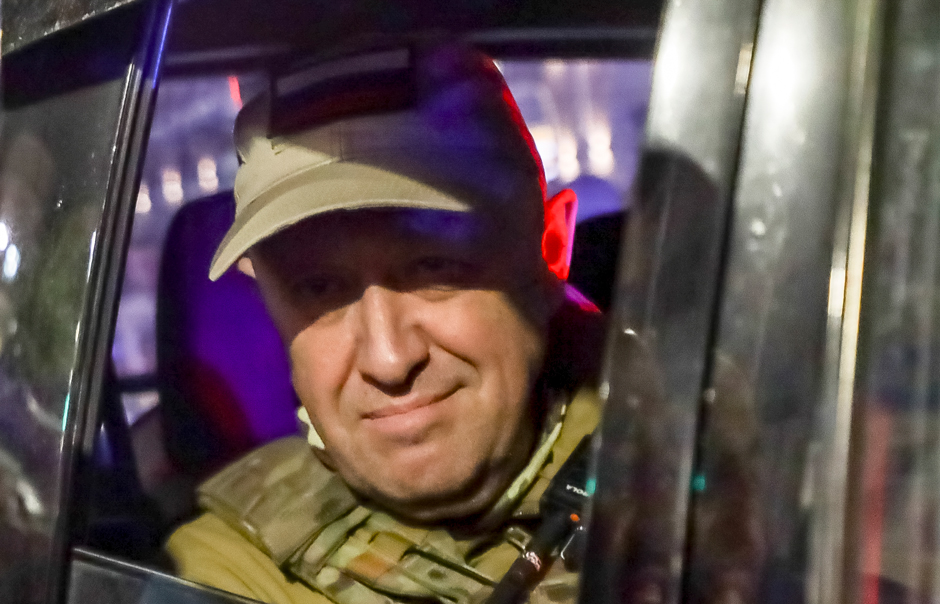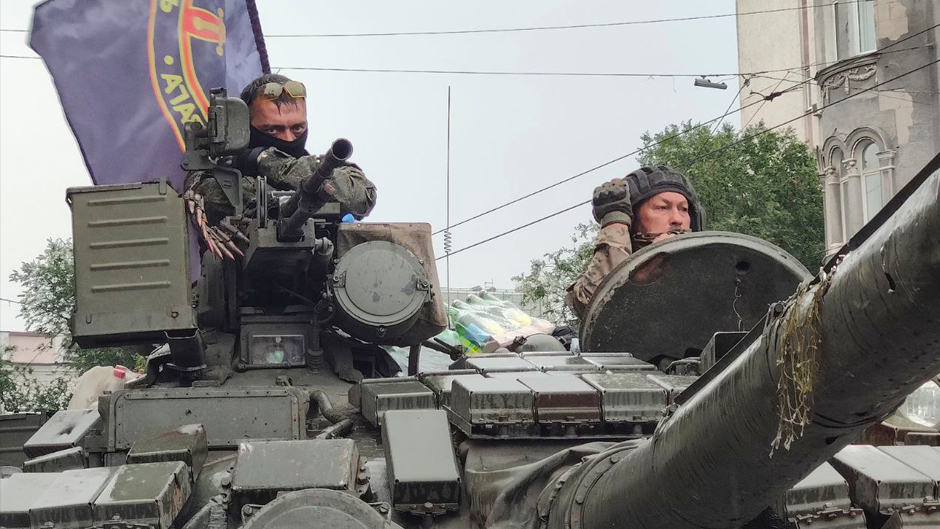In an emergency televised address to the Russian people on Saturday, as Yevgeny Prigozhin’s private army of mercenaries rumbled nearly 500 miles toward Moscow on its “march for justice,” Russian President Vladimir Putin denounced the traitors, vowed punishment, and compared the scenario to the turmoil that resulted in the Russian Revolution.
“A blow like this was dealt to Russia in 1917 when the country was fighting in World War I. But the victory was stolen from it: Intrigues, squabbles, and politicking behind the backs of the army and the nation turned into the greatest turmoil, the destruction of the army and collapse of the state, and the loss of vast territories,” said Putin, who vowed that “this will not happen again.”
Marcia Beck, a political scientist in the College of Arts and Sciences at the University of Miami, highlighted that the starting point for understanding Putin’s inference is that Prigozhin’s Wagner Group mutiny involved Russians shedding the blood of Russians.
“Putin's reference is to the Russian Revolution and the ensuing civil war in which Russians brutally shed the blood of other Russians, and which eventually led to declarations of independence on the part of the Russian Empire's subjugated peoples, including the Ukrainians in 1918, and Russia losing three of its Baltic territories, most of Belarus, and all of Ukraine,” she said.
“What he didn't mention—but what must be foremost on his mind—is that the civil strife resulted in the overthrow of Russia's last tsar, Nicholas II,” Beck added. “That is the outcome that Putin most fears from the reverberations of Prigozhin's insurrection, regardless of any deal that ended it for the moment.”
While Putin later negotiated to halt the uprising situation and granted immunity to Prigozhin and his troops, Beck doubted that he would allow the Wagner Group paramilitaries to continue as a force, at least in Russia.

Yevgeny Prigozhin is seen before leaving Russia for Belarus. Photo: The Associated Press
“That would be too much of a threat to Putin at this point, especially after the positive reception its members received upon entering Rostov-on-Don. It's especially notable that no Russians came out on the streets to show support for Putin or opposition to Prigozhin or the Wagner revolt,” she noted.
For most Russians, too cynical about power in Russia and the ability of any independent group to break through the power structure, apathy tends to be the reaction to any machinations taking place with Putin's “power vertical.”
“Putin thus can’t afford to let any independent group, even one dependent on him for funding and resources, wield the kind of influence and capability of challenging his power that the Wagner revolt exhibited,” Beck said.
Prigozhin, an oligarch who made his fortune in the food industry in the 1990s, was known as “Putin's chef” after Putin came to power because of all the lucrative catering and other contracts he secured with Russian state institutions. He formed the Wagner group of mercenaries in 2014, when Russia annexed Ukraine's Crimea region and fomented unrest in the eastern parts of Ukraine, Donetsk, and Luhansk, among pro-Russian separatists, Beck explained.
Since that time, he has remained in the shadows and in fact did not acknowledge his leadership of the Wagner group until after Russia invaded Ukraine in 2022.
In comments Monday, Prigozhin maintained that he never intended to overthrow Putin or challenge the state. His motives in the “march for justice” were in retaliation for a missile strike on one of the militia camps and to save his private army from being subsumed into the Russian military. His soldiers were ordered to sign contracts integrating them into the Russian army by July 1.
Prigozhin has been increasingly outspoken in his criticism of how the Russian war in Ukraine is being executed—poor planning, faulty logistics, lack of equipment and supplies, and incompetent command structure. His vociferous and very public criticisms have been directed at Defense Minister Sergei Shoigu and Chief of the General Staff of the Russian Armed Forces Valery Gerasimov.
Though managed for now, the mutiny poses the most significant threat to Putin’s rule in his 23 years in power. “Whatever happens in the short term, this is likely the beginning of the end of the Putin era,” Beck said.
“Putin has basically eviscerated all state institutions and structures, to the point where they serve only his interest and the interests of those clan members dependent on him,” she added. “There are no independent institutions of state that have, so far, been capable of rising above the personal interests of Putin or his clan dependents to truly act ‘in the interests of the state.’ ”
The aborted uprising could call into question Putin’s hold on power, which up to this point has been based on a combination of oppression and co-optation.
“Putin either has his enemies killed or jailed. He retains power by managing the various clans that dominate Russia today; taking advantage of the many conflicts among the clans and between their strongest personalities; and doling out state, industry, and economic positions as perks for those who remain loyal to him,” Beck pointed out.
The Russian leader has continued to maintain power by strengthening his power vertical—all potential opponents are completely dependent on him to maintain their positions, their wealth, and their influence.
Does Prigozhin pose a political threat?
“It’s very unlikely, and we should hope that it never happens,” Beck said. “Prigozhin is a thug in the worst meaning of that term. The man known as ‘Putin’s personal banker,’ the billionaire Yuri Kovalchuk, is supposedly Russia’s ‘second most powerful man,’ but it’s open to question whether he or anyone else could ever control the competing clan members in the way Putin has. Putin has no designated successor and there are no institutional foundations within which a viable successor could have risen through the ranks.”
Beck highlighted that Russians historically are known to have a deep and almost visceral fear of disorder and chaos in their own land.
“That’s one reason the broader population tends to support autocratic rule. With Putin’s weaknesses so clearly exposed by the Wagner mercenary revolt, that fear may once again prove justified,” she said. “With no instructional foundation for determining a successor to Putin, the clan battles may well result in Russians fighting Russians as the modern-day tsar suffers an ignominious defeat."

